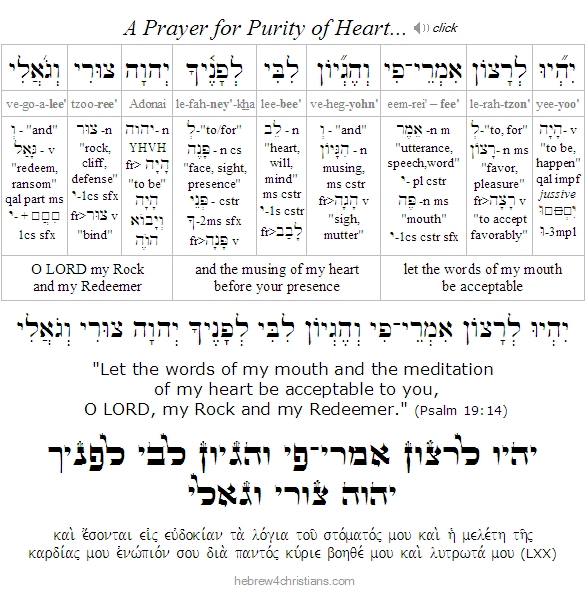|
about how we think, and especially about how we esteem others. The Chofetz Chaim wrote that the foundational principle of shemirat ha-lashon (guarding our speech) is to always judge others in the best possible light. This involves hakarat tovah, that is, recognizing the good in others, and choosing to see with ayin tovah, a "good eye." It is better to judge favorably - even if we are in error - than it is to judge critically -- even if we are telling the truth.
The sages say that our judgments carry great weight in heaven. The words we say, whether good or bad, call for a response in the realm of spirit. This is hinted at by the Hebrew word for "thing," i.e., devar, which also means "word." When we defend someone and speak favorably of him or her, our words mean something and favorably dispose heaven itself; on the other hand, if we accuse them or are critical of them, we align our thoughts with Satan, and the opposite effect is produced. Moreover, there is great danger when we accuse others of wrongdoing, since we thereby open ourselves up to reciprocal judgment (Matt. 7:3-5). It takes great chokhmah (wisdom) and humility to offer godly correction to others, and it is vital that we approach this matter with fear and trepidation. Our motive always must be love for the other person, never vindictiveness or pride.
Listen to the words of your heart and understand that they are devarim, "things" that are defining the course of your life right now. Proverbs 4:24 says, "more than all else, guard your heart, because from it are the bounds of your life." Our thoughts and words are ultimately "prayers" we are constantly offering... How you think/pray determines the "bounds" or course of your life. As Yeshua said, "According to your faith be it done unto you" (Matt. 9:29).
Yeshua spoke of "good and evil treasures of the heart" that produce actions that are expressed in our words (Luke 6:45). The focus here is not so much on the externals (for example, the use of profanity), but rather on the underlying condition of the human heart. Our inward motive determines our thinking, which in turn affects the way we act and use words. We must be on guard to keep away from lashon hara (evil speech) by focusing on what is worthy, lovely, and of good report (Phil. 4:8).
May the words of our mouth and the meditation of our hearts be acceptable to the Lord, our strength and our redeemer. Amen.
Hebrew Lesson
Psalm 19:14 reading:

<< Return
|



